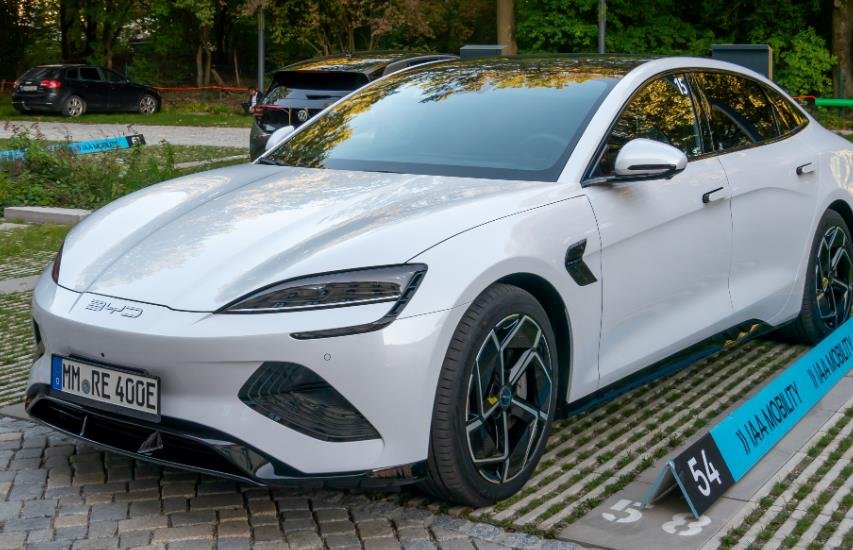Chinese carmakers are finding innovative ways to navigate the European Union’s new tariff plan, which imposes additional duties on electric vehicles (EVs) imported from China. The EU’s decision to levy tariffs of up to 38% on Chinese EVs aims to counteract what it sees as unfair subsidies that give these vehicles a competitive edge. In response, Chinese manufacturers are exploring creative strategies to maintain their market presence in Europe, including forming joint ventures and relocating production facilities.
The EU’s new tariff plan has presented significant challenges for Chinese carmakers, who have been rapidly expanding their presence in the European market. The tariffs, which add to the existing 10% import duty, are intended to level the playing field by addressing the perceived unfair advantage provided by Chinese government subsidies. This move has prompted Chinese manufacturers to rethink their strategies and explore new ways to mitigate the impact of these tariffs.

One approach being considered is the formation of joint ventures with European companies. By partnering with local manufacturers, Chinese carmakers can share technology and resources, thereby reducing costs and avoiding some of the tariff burdens. This strategy not only helps Chinese companies maintain their market share but also fosters collaboration and innovation within the industry. For instance, Stellantis has already formed a joint venture with China’s Leapmotor to start operations in Europe.
Another strategy involves relocating production facilities to Europe. By setting up manufacturing plants within the EU, Chinese carmakers can bypass the tariffs altogether. This move requires significant investment but offers long-term benefits, including closer proximity to the market and reduced logistical costs. Some companies are already exploring this option, seeing it as a viable solution to the tariff challenge.
Embracing Innovation and Collaboration
The tariff plan has also spurred Chinese carmakers to embrace innovation and collaboration more aggressively. The need to adapt to new market conditions has led to increased investment in research and development, with a focus on creating more efficient and cost-effective EVs. This push for innovation is expected to result in the development of new technologies and products that can compete more effectively in the global market.
Collaboration with European partners is another key aspect of this strategy. By working together, Chinese and European companies can leverage each other’s strengths and expertise. This collaborative approach not only helps mitigate the impact of tariffs but also drives technological advancements and improves product quality. The joint ventures and partnerships being formed are expected to lead to the creation of cutting-edge EVs that meet the needs of European consumers.
In addition to technological innovation, Chinese carmakers are also focusing on enhancing their brand image and customer experience. By investing in marketing and customer service, they aim to build stronger relationships with European consumers and establish a loyal customer base. This holistic approach to market adaptation is crucial for maintaining competitiveness in the face of new regulatory challenges.
Future Prospects and Opportunities
Despite the challenges posed by the EU’s tariff plan, Chinese carmakers remain optimistic about their future prospects in Europe. The strategies being implemented are expected to not only mitigate the impact of tariffs but also position these companies for long-term success. By embracing innovation, collaboration, and market adaptation, Chinese manufacturers are poised to continue their growth in the European market.
The relocation of production facilities and formation of joint ventures are likely to have a lasting impact on the industry. These moves will not only help Chinese carmakers navigate the current tariff challenges but also strengthen their presence in Europe. The increased investment in research and development is expected to lead to the creation of more advanced and competitive EVs, further solidifying their market position.
Looking ahead, the evolving landscape of the automotive industry presents numerous opportunities for growth and innovation. The push for sustainability and the transition to electric vehicles are driving demand for new technologies and solutions. Chinese carmakers, with their focus on innovation and collaboration, are well-positioned to capitalize on these trends and continue their expansion in the global market.
========== ARTICLE ENDS HERE ==========
- Category: News
- Sub-category: Business
- Meta Description: Chinese carmakers find creative solutions to navigate the EU’s new tariff plan, including joint ventures and relocating production facilities.
- URL Slug:
- Image: joint ventures production facilities innovation collaboration
















